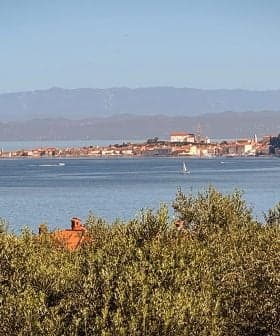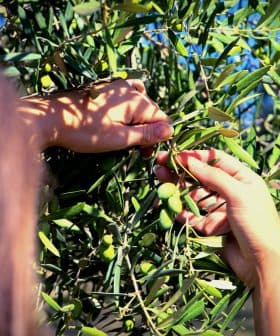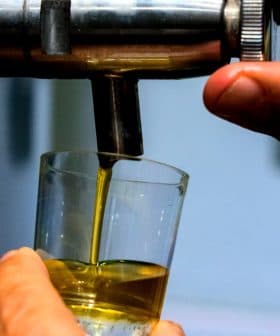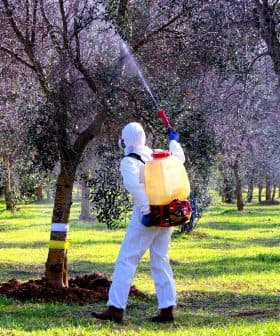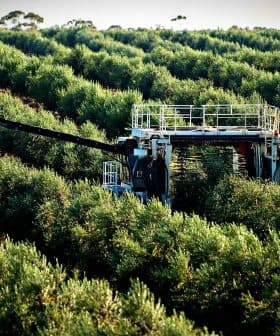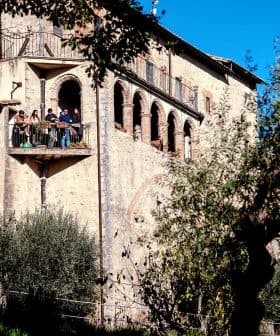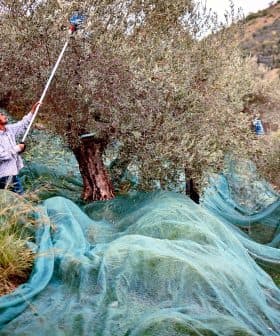 5.4K reads
5.4K readsBusiness
New Effort to Save Xylella-Hit Olive Trees in Apulia
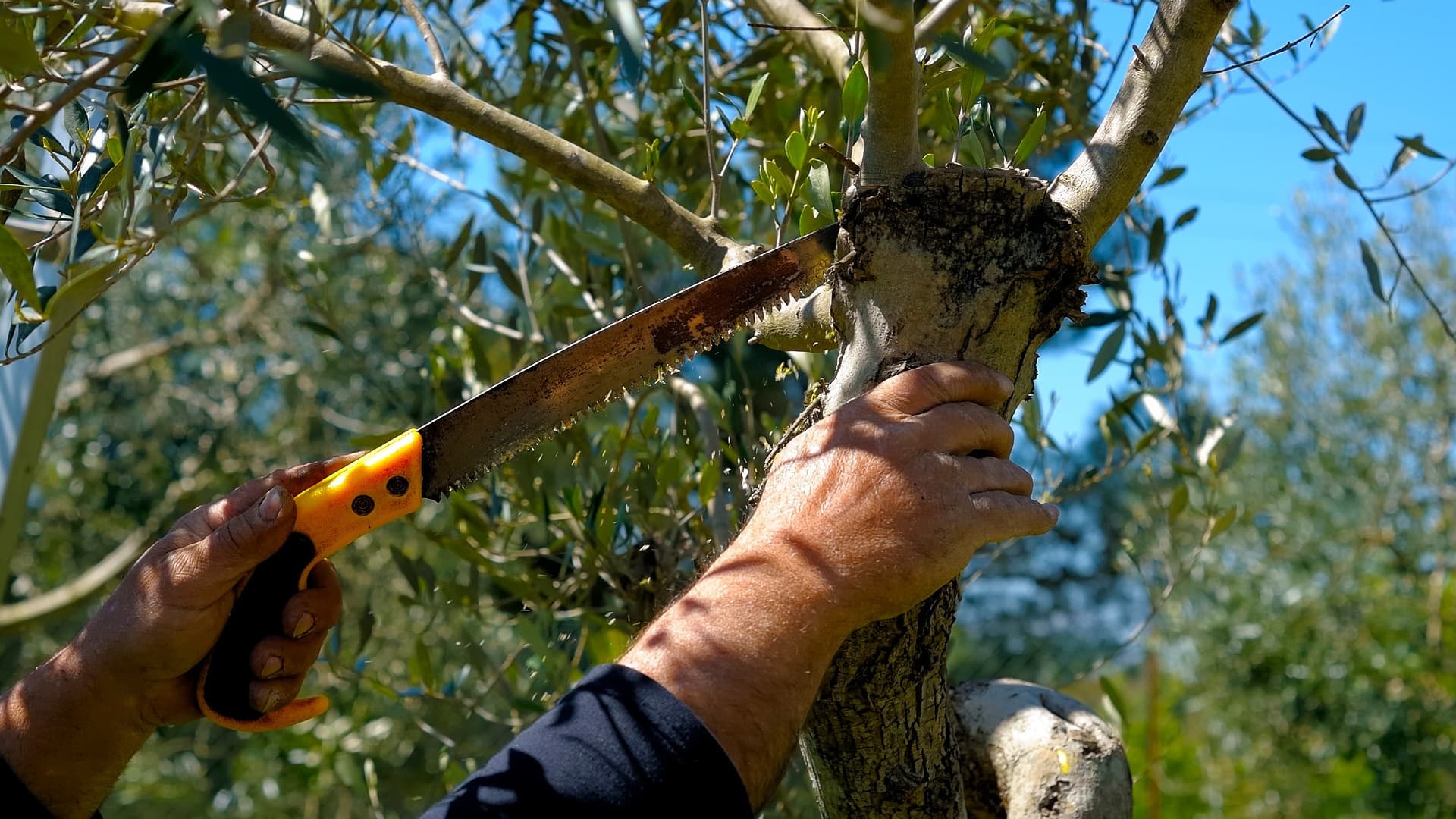
Olive growers in Ostuni are teaming up with researchers to combat the Xylella infection in their ancient trees by implementing the Scortichini protocol, with the resulting olive oil being sold under the new association “Circle of Life.” The goal of the association is to protect and value the olive oil produced by ancient trees while spreading the protocol to other districts and infected areas, with plans to provide online resources for growers to adhere to the protocol.
In Ostuni, one of the Apulian districts hit by the Xylella fastidiosa infection, olive growers and owners of the traditional rural farms known as “masserie” are preparing to combat the bacteria infecting their millenary and century-old olive trees. The olive growers and farm owners will team up with researchers to support, spread and finance the widespread application of the Scortichini protocol.
Olive oil produced by the resilient orchards adhering to the protocol created by the newly funded anti-Xylella association, “Circle of Life,” will be sold and researched.
“We have already started; this year it was our first year. We have two hundred olive trees here, and for the initiative, we produced one bottle of extra virgin olive oil for each one of the trees,” Jennifer Andreu, owner of Masseria Guadalupe in Ostuni and Circle of Life coordinator, told Olive Oil Times.
See Also:Growers in Xylella-Ravaged Puglia Assess a Delicate HarvestThe resulting “Olio Traiana” extra virgin olive oil is named after the “Via Traiana,” the ancient Roman road that connected Brindisi to Benevento and the rest of the Roman territory.
“The goal of the association is to give value to the excellent olive oil produced by the ancient trees while protecting them and supporting those who do not have the means to adopt the protocol and save their trees,” James Kinahan, Olio Traiana and Circle of Life marketing manager, told Olive Oil Times.
The association hopes to eventually adopt a specific label for EVOOs produced by Scortichini protocol-adhering orchards. “That could also help in spreading our idea to other districts and reach other infected areas,” Andreu added.
“For the current production, we have had the intervention of the famous Mexican artist and designer Pedro Friedeberg, who authored this year’s label and helped us craft a product which also includes information about the Scortichini protocol,” Kinahan noted.
In the last seven years, several olive growers have applied the Scortichini protocol in southern Italy. Its success illustrated how a correct deployment of a specific organic product coupled with good farming practices and efficient pruning techniques could prevent and curtail the impact of the bacteria.
“We have seen the results by talking with the growers who are applying the protocol. We already organized two events with the local community, and new ones are scheduled. There is a growing interest for the protocol,” Andreu said.
The Scortichini protocol is named after the National Research Council director of research Marco Scortichini. Over the years, the protocol has been shown to halt the bacteria’s reproduction and allow the olive tree to withstand the infection.
“We had Marco Scortichini at the last event in December, with him was another researcher of the University of Bari, Francesco Porcelli, whose work is crucial in understanding the dynamics of the spreading of the bacteria. We also had the support of the local branch of the CIA-Italian farmers association, which will help Circle of Life in reaching farmers in the area,” Andreu explained.
Many local growers interviewed by Olive Oil Times confirmed that the Scortichini protocol allows even highly infected olive trees to recover and start producing again.
See Also:Xylella Fastidiosa Containment Protocol Proves Effective in Puglia“On top of that, the protocol proved to be successful in curtailing highly-damaging fungi and containing the spreading of the olive fruit fly,” Andreu noted.
Andreu, born in Mexico, is teaming up with other ex-pats to save the historic Italian olive trees, which is why many of them moved to Puglia. “We are talking about plants included in the UNESCO world heritage list. When we arrived here and saw such a unique landscape, we found so many other masseria owners worried for the future of the beloved olive trees. We all felt there was a lack of guidance and currently adopted protocols were not stopping Xylella from spreading,” she added.
In the last few months, dozens of trees have been infected outside the red zone areas. Just a few weeks ago, local regional authorities expanded the territory formally considered hit by Xylella to include the new regions.
In the infected districts, authorities conduct intense monitoring operations and destroy infected olive trees. Farmers attempt to use cleaning practices to limit the opportunities for the Xylella vector insects to reproduce and contribute to the further spreading of the bacteria.
Still, just before Christmas, monitoring operations again found more infected trees outside the current red zones.
“Our goal is to give value to the olive oil of those unique centuries-old plants. And to show how the protection of the trees and of such landscape has strong economic implications,” Kinahan noted.
The next steps for the new initiative will include posting all of its information and a treatment calendar online. “That will help growers to contact us and eventually adhere to the association. It will also support them in planning in advance the deployment of the protocol the whole year through,” Andreu concluded.
- The most recent infections
- Xylella Fastidiosa Containment Protocol Proves Effective in Puglia
- Authorities in Puglia Identify New Outbreak of Xylella Fastidiosa


